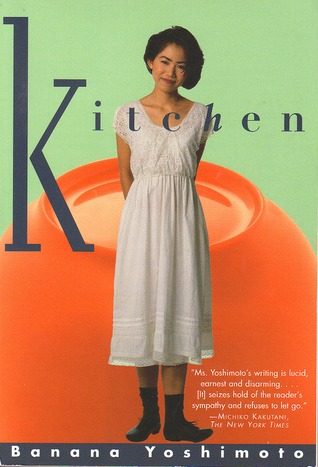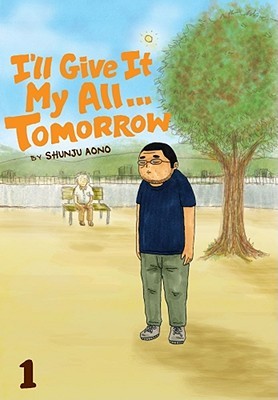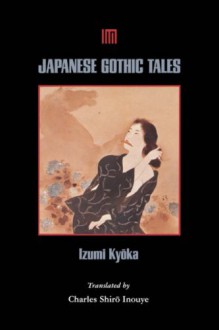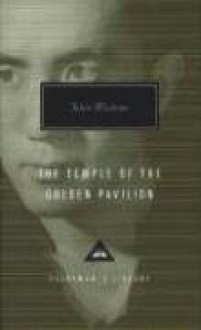In preparing for my trip to Japan, from which I returned more than a month ago, I began to read a few of the Japanese works of literature that I had been gathering at library book sales over the years. Of course, this type of "theme" reading is something that I'm all about. Basically, I'll put together a theme reading list for just about any activity or event in my life, so absorbing some of the works of prominent Japanese authors throughout the 20th and 21st century was a given!
Reading these works before taking off, during my stay in Japan, and after my return was quite interesting, as my experiences influenced both my response to the culture and changed how I saw the books I was reading as well. Here, I've arranged them in order of publication.
 I opened up my reading this summer with Botchan by Natsume Soseki. Often called the Japanese equivalent of Huck Finn, as in a classic work of literature that most people encounter in high school, Botchan was still a pretty funny read, even across the cultural and time divide.
I opened up my reading this summer with Botchan by Natsume Soseki. Often called the Japanese equivalent of Huck Finn, as in a classic work of literature that most people encounter in high school, Botchan was still a pretty funny read, even across the cultural and time divide.
Written in 1906, during the Meiji Period, a time of great change in Japanese society as the nation works to modernize and industrialize itself, Botchan exemplifies this uncertain but exciting time. Following an self-confident, some would say arrogant, young college graduate from Tokyo as he reluctantly starts his first job as a teacher in an out of the way, rural town, I actually found a lot to sympathize with in his situation. In a way, I could see some parallels between this "untrustworthy narrator" and the complaints about Millennials today.
As the headstrong kid butts heads with his fellow teachers and their set ways of doing things, he feels he is being set up to fail. Not sure exactly what he wants, homesick for his cosmopolitan hometown, he does not adapt well to this new environment and soon begins plotting to get back at these insincere phonies to hilarious result. I particularly enjoyed the nicknames he gave all of his coworkers on the first day.
 I first read this collection of eerie Japanese stories by Kyoka Izumi some years ago, when I was looking for weird tales from different cultural backgrounds. I found it even more interesting as a companion on the trip as I learned more of the locations and history written about by Izumi.
I first read this collection of eerie Japanese stories by Kyoka Izumi some years ago, when I was looking for weird tales from different cultural backgrounds. I found it even more interesting as a companion on the trip as I learned more of the locations and history written about by Izumi.
Japanese Gothic Tales contains four novellas, written during the Meiji and Taisho periods of Japanese history. Eschewing the modernism aimed for by other authors at the time, Izumi's work is nonetheless influenced by this period of great change in Japanese culture. The stories themselves are surreal and eerie, particularly my favorite, "The Holy Man of Mount Koya," which deals with spooky creatures and magic in the mountains.
One of the major themes of all four of the stories is the relationships between men and women, and tragedy that results, along with strong supernatural elements- also, a theme of the story being told second hand via a secondary narrator relating some experience to a nameless viewpoint character gave the tales a folkloric air; there is also much to ponder regarding Buddhist and Shinto beliefs, Japanese philosophies, and the transforming history of the period.

First published in 1956, The Temple of the Golden Pavilion was a gripping and taut psychological novel featuring a fictionalized telling of the infamous 1950 arson of Kinkaku-ji, a Zen Buddhist temple in Kyoto by a mentally unstable young monk.
Yukio Mishima, one of Japan's foremost modern writers and himself a psychologically complex figure, delved into the dark resentments and philosophies of the neurotic Mizoguchi. A Zen acolyte groomed to join the clergy who developed a pathological love and hatred for the beauty of the Temple of the Golden Pavilion, bound in with his misogyny and self-hatred. Self described as ugly, and afflicted by stuttering, he finds his family's dream of him taking over the Temple taken from him, and responds by burning the temple to the ground, justifying it through his Zen beliefs. Not exactly a happy tale, it is nonetheless a riveting account of an unhealthy mind. It does contain much to think about regarding Zen Buddhist teachings as well.

Published in 1961, this collection of stories by Yusanari Kawabata explore some dark and surreal territory. I think that one of the literary terms appropriate here may be "decadence." The title story, "House of the Sleeping Beauties," for instance, is a fairly disturbing tale of an aging man paying to sleep next to drugged, unconscious, naked women, and much of the story is the narrator describing the physical appearance of each of the women and how they remind him of people and places from his past. He also considers strangling them.
"One Arm" also involved a surreal episode of a man paying for a woman's body, in this case her physical arm, which is painlessly detached and he takes away with him, later to swap with his own arm. The last tale, "Of Birds and Beasts," discusses the authors love of animals and how this love translates more into cruelty than kindness towards his favorite pets. Not really sure quite what to make of these ornate, complex stories.

Wow, what to say about this one, this tour de force of pitch black humor and deadpan surrealism, this fevered tour of Japan's deepest id.
Kiku and Hashi, their lives haunted by their newborn hours spent stifling in adjacent train-station coin lockers, abandoned to die by their pitiless mothers attempted to navigate their way through a bizarre and labyrinthine world. Growing up as adopted brothers, most comfortable in the abandoned ruins of Japan’s former industry, they begin to plot revenge against the society that created their mothers. While stoic, pole-vaulting Kiku finds a soulmate in Anemone, a cynical, crocodile loving model who shares his hatred of Japanese society and a desire to destroy it all, the sensitive, neurotic Hashi becomes a male prostitute, a pop-star, and loses his mind. Both share a penchant for murder and rice omelets.
From Tokyo to up to the northern town of Hakodate, all the way down to the Ryukyuan Islands, the trio encounter a host of bizarre characters while struggling with their own inability to get over their maternal abandonment. There is much analysis that can be attempted about what aspects of Japanese culture Murakami was parodying and exploring in this bleak book. Of course, Coin Locker Babies finishes up with no real resolution, or even any real ending, though there is plenty of tension.

The two novellas by Banana Yoshimoto collected in this book, the titular "Kitchen" and "Moonlight Shadow," were both effecting, melancholy, hopeful, and beautiful descriptions of personal loss and everyday pleasures. Evoking both the mundane pleasures and the grief of lost loved ones, Yoshimoto's stories illustrate the complex feelings of life.
Also, particularly in "Moonlight Shadow," there is a magic realist theme that I really found interesting as well. Focusing on young people not sure where they are going and trying to cope with the loss of loved ones, I think a lot of people can really identify with them. It is also really interesting to see these common human feelings through the eyes of a different culture as well. Of course, owing to Yoshimoto's lush descriptions of food, I am definitely looking forward to going to some more restaurants in Tokyo.

Along with the more "serious" works I've looked at so far, I also thought it would be relevant to read a couple of manga titles before the trip, as well. The first volume of Yuki Urushibara's Mushishi was an eerie, understated fantasy read I quite enjoyed- it had a supernatural theme that echoed Japanese folklore and belief combined with an interesting naturalistic scientific background as well.
Following the Western costumed "Mushi master" (mushishi) Gingko, as he travels a feudal Japanese countryside helping people deal with mushi- strange, and inexplicable phenomena that may or may not be life as we know it, but which predates plant and animal life by eons. Urushibara's lush, atmospheric art does a lot to cultivate the mysterious feelings explored in her writing. I'm looking forward to seeing where the rest of the series goes.

Shunju Aono's dramedy series "I'll Give It My All... Tomorrow" has been very interesting to me. With it's unusual art style and mundane, slice of life storytelling, it is a realistic, heart felt, and funny glimpse into everyday life in modern Japan. A contrast to the escapist, larger than life style of most manga, Aono's work is low key, touching, and funny.
// <![CDATA[
document.domain='hclib.org';
function pick(patron) {
parent.document.security.sec1.value = patron;
parent.document.security.submit();
}
// ]]>
Following the "exploits" of Shizuo Oguro, a bit of a sad sack who, in the throws of a midlife crisis, quits his soul-sucking job as a salary-man to follow his dream of becoming a manga artist. A man who often changes his identity, Oguro finds himself whiling away his days working on his cliched manga ideas, taking advantage of his father and daughter's generosity before being forced to take a job in fast food to make ends meet. As the series continues, we watch Oguro's pathos evolve, particularly through the lens of his friends and family.
It was very interesting seeing how these accounts of Japanese life were reflected in my own experiences in the country, and how my own responses and mental pictures of them also changed. Now, I have a frame of reference to look at them, and likewise, reading these works also prepared me for what to look for during my journeys. Of course, they we'rent perfect, either. I could only read English translations, which leaves a lot of the original feel of the language out, I feel. In Botchan, for instance, Soseki was fond of using witty puns, puns which would make no sense in English and, for the most part, were left out. Still, even through this imprecise method, reading these books allowed me, in a way, to continue my trip even after I returned home.

Now that my trip to Japan is already quickly fading into the fuzzy pleasantness of nostalgia, these books will allow me to keep my experiences close, at least until my next trip!
*Theme music for entry: "My Magic Glasses," Shonen Knife, Genki Shock, 2005


 Log in with Facebook
Log in with Facebook 








 I opened up my reading this summer with Botchan by Natsume Soseki. Often called the Japanese equivalent of Huck Finn, as in a classic work of literature that most people encounter in high school, Botchan was still a pretty funny read, even across the cultural and time divide.
I opened up my reading this summer with Botchan by Natsume Soseki. Often called the Japanese equivalent of Huck Finn, as in a classic work of literature that most people encounter in high school, Botchan was still a pretty funny read, even across the cultural and time divide.  I first read this collection of eerie Japanese stories by Kyoka Izumi some years ago, when I was looking for weird tales from different cultural backgrounds. I found it even more interesting as a companion on the trip as I learned more of the locations and history written about by Izumi.
I first read this collection of eerie Japanese stories by Kyoka Izumi some years ago, when I was looking for weird tales from different cultural backgrounds. I found it even more interesting as a companion on the trip as I learned more of the locations and history written about by Izumi. 











